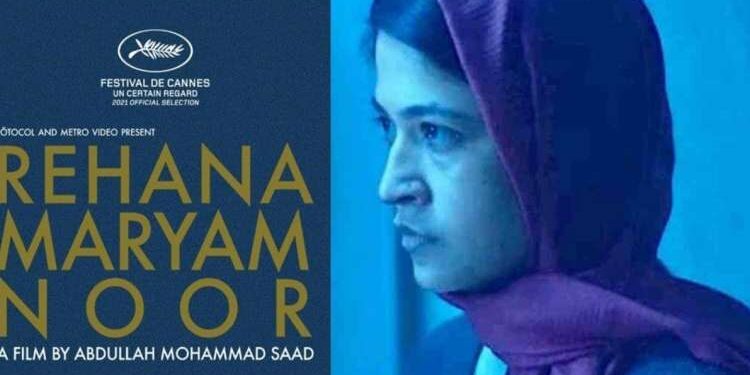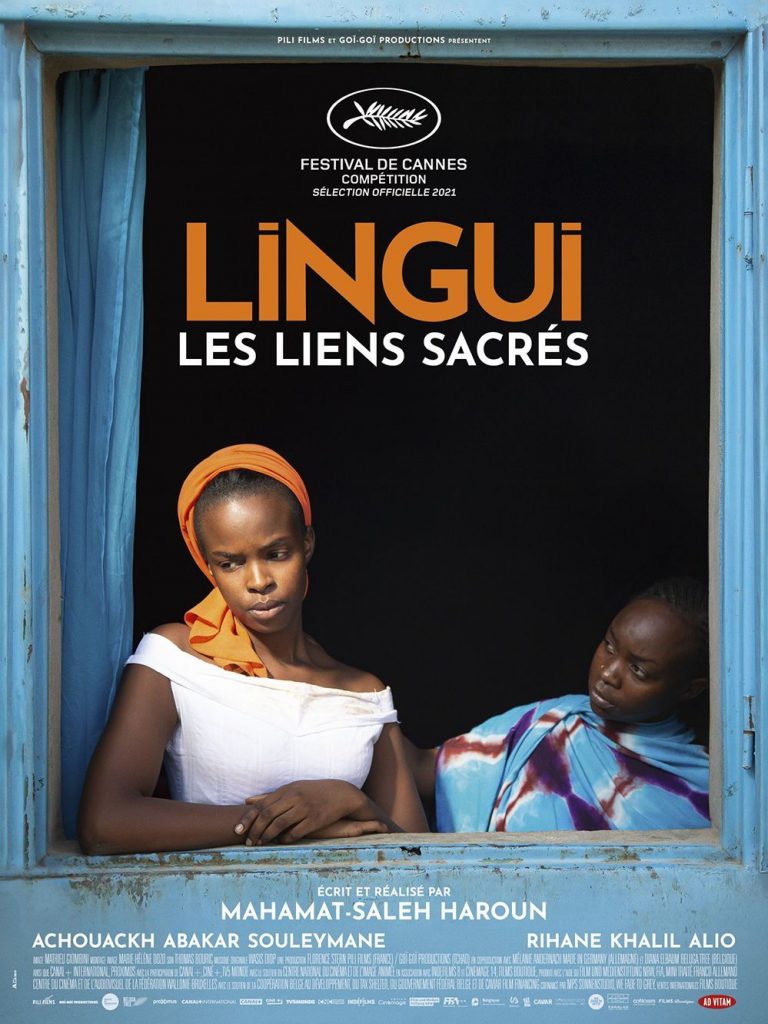From the first two days of this 74th edition of the Cannes Film Festival which is exceptionally held from July 6 to 17, 2021, there were projection of two films which deal with the subject of sexual assault and rape in two Muslim countries. Same theme, but two films so different.
The first is Rehana Maryam Noor (Bangladesh), directed by Abdullah Mohammad Saad, in competition in the Un Certain Regard section. This film is also the first Bangladian film in the official selection at the Cannes Film Festival (great emotion of the film of the film elsewhere).
A very beautiful film, and which proves, if necessary, the vocation of the Cannes Film Festival, which makes it possible to give visibility and to promote cinemas around the world, including distant countries and gives young filmmakers around the world to rub shoulders with the greatest professionals of the cinema in the world for a few days.
Rehana Maryam Noor is the second film by Abdullah Mohammad Saad after Live from Dhaka (2016), which allowed him to win the prize for best director at the Singapore International Film Festival and to be selected at several festivals. Like his first film, Rehana Maryam Noor Based on characters with a strong character, like his protagonist embodied by Azmeri Haque Badhon.
Her husband who died, Rehana finds herself alone to work and take care of her little daughter. She must also take charge of her unemployed big brother and her mother.
Her days are very busy and she must juggle her obligations as a doctor and a teacher and her family obligations as mother, sister and daughter.
Rehana is a deputy professor in a Dhaka university hospital (Bangladesh). As she trains future doctors, she takes her job very seriously and tries to exercise it with great conscience and even a certain intransigence.
One day, she witnesses her colleague’s sexual assault on a student. She doesn’t know what to do, be silent or denounce? This is the second solution she chooses: she cannot be silent and pretend she had seen nothing.
And that’s where his world changes. Nobody wants to know or see. Person. Such a matter can only harm the colleague, his family and the reputation of the faculty. We ask him to be silent. The victim herself begs her to be silent, even threatening her to commit suicide if he ever spoke.
The director of the faculty, who is even a woman, also asked her for silence. The colleague’s wife also wants to see anything. The main thing is to save the appearance of honor.
A replica is also significant. When Rehana asks the wife how she could accept to live with a sexual attacker, her response had been: ” As long as he believes that I don’t know … “. Yes, appearances. Save appearances and close your eyes to have peace. The important thing is that honor is except.
What Rehaha cannot conceive, who seems to have a keen sense of justice.
The aggressor’s colleague, who began by denying the facts, begs her to be silent and threats it. But Rehana is determined, the more pressure she undergoes, the more she is decided to speak and denounce. She cannot accept such acts.
She will pay the very expensive price. All will turn away from her. But she does not back down.
At the same time, she received a school complaint regarding the unusual behavior of her six -year -old daughter. But Rehana, uncompromising, refuses to accept the absurdity and injustice of patriarchal society and will put everything at stake so that justice is done to her student and her daughter, whom she would like to become like her.
The film is very well done. The characters are very well studied and convincing. We feel the tension that Rehana undergoes, we understand it, we understand his motivations and besides we can only be united, even if the film pushes to ask: if I was in its place, what would I have done? Would I have been ready to sacrifice everything to be able to denounce and obtain justice?
A standing ovation deserved after the projection. With actress Azmeri Haque Badhon so moved that she almost sobbed it, totally the opposite of this cold and determined woman of the film.
Cannes 2021 – Azmeri actress Haque Badhon, who plays the role of Rehana, cries of emotion
The second film is Lingui, sacred linksof the Chadian director Mahamat Saleh Haroun in official competition.
The same subject is dealt with completely differently, with an insistence on the place of Islam in society, with an imam who believes he has the right to interfere in people’s privacy and give them advice and even try to impose them.
In this very pious society (or who tries to make it believe), Amina (Achoucack Abakan Souleymane) is a mother girl. When young she had been pregnant, she had been sent from school and banished by her family. Poor seen by all, she works hard to raise her daughter. But one day, she is summoned by the director of the school, who announces the dismissal of Maria (Rihane Khalil Alio) because it is. His own story that is repeated with his daughter.
Amina will have to find a solution to abort her daughter in a country where religion and law prohibit abortion. She does not want her daughter to suffer the same fate as her.
Even if the goal of the film is laudable and it tries to demonstrate the hypocrisy of society, the very strong place of religion which interferes in the daily life of people and wants to impose itself almost by force, the fight of women who try to find solutions to deal with sexual assault, unwanted pregnancies, excision, and which are united between them, led to cheating for men, miserably on the form. “” You have to remain indulgent ” said a French journalist, “It is an African film, and we cannot ask him to be of the same quality as our films”.
Yes, we can be indulgent, because it is obvious that African filmmakers do not have the same financial and technical means as European or American filmmakers, but there is still a minimum, which is not found in this film, very badly constructed.
The clichés follow each other, we know in advance what will happen since the characters are so predictable. The actors do not save the bet, on the contrary, they are not natural, they do not interpret roles, they recite …
There are scenes that are very badly played, yes that are useless, or are downright illogical. For example, Maria wearing a long white dress, throws herself into a river to try to commit suicide. She is saved by a group of young men, who will revive her and bring her home. What is amazing is that the white dress will remain clean. Yes, clean, when it was in the water, touched … no spots? No tears? No mud?
The question is: how could such a film be selected at the Cannes Film Festival? Encourage these young filmmakers, yes of course, but should we not demand a minimum of quality from them?
Neïla Driss
Read on the same subject:










